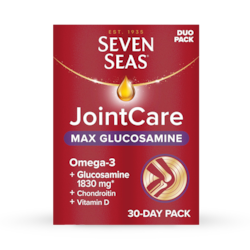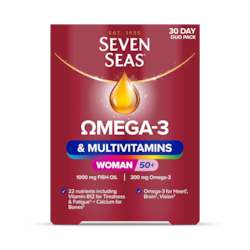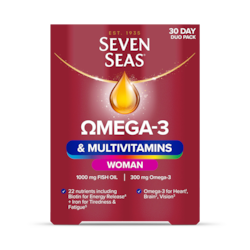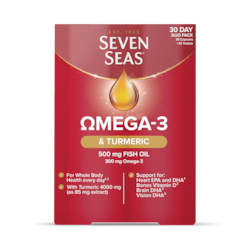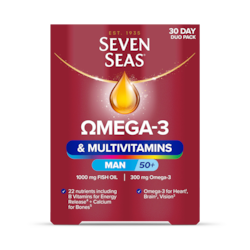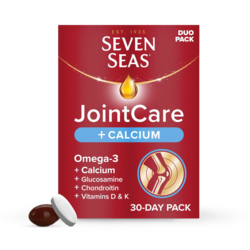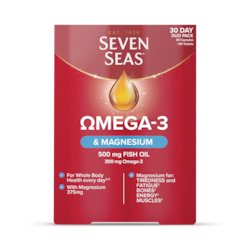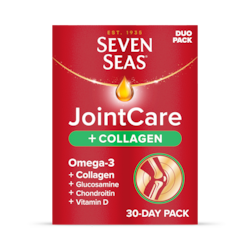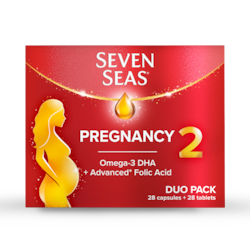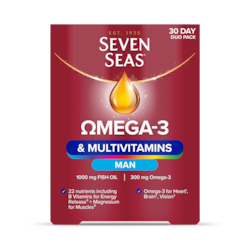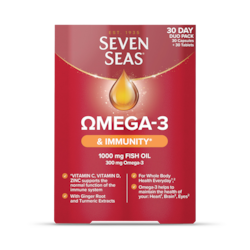15% off £20
Fish Oil
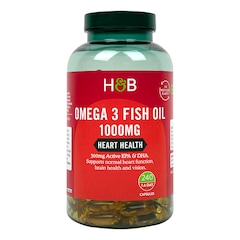
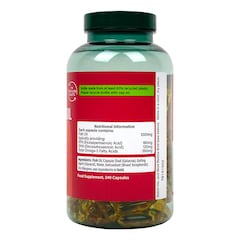
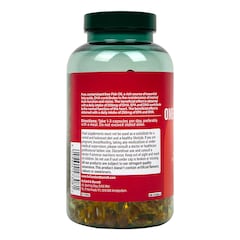
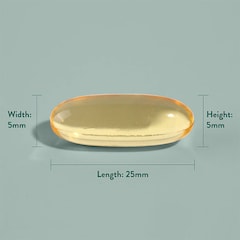
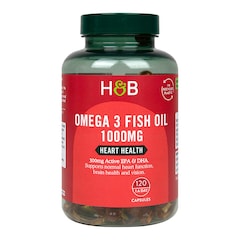
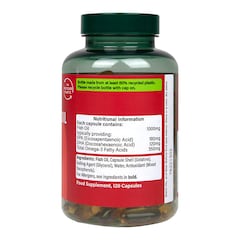
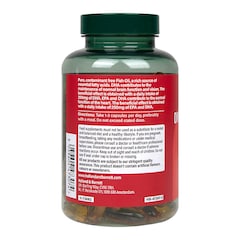
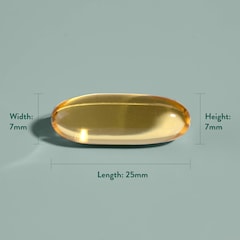
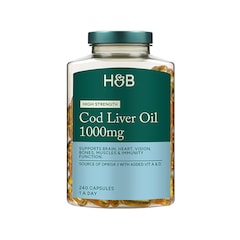
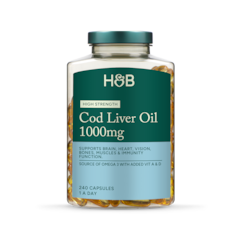
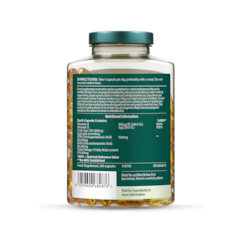
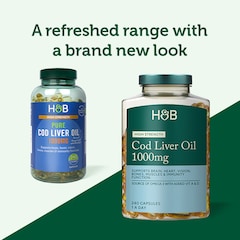
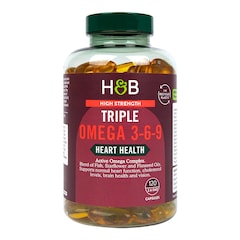
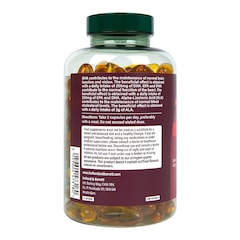
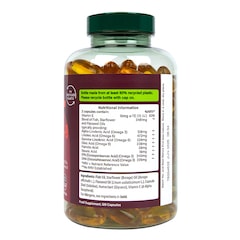
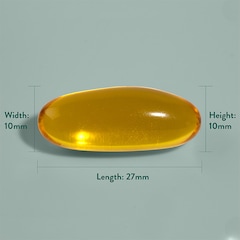
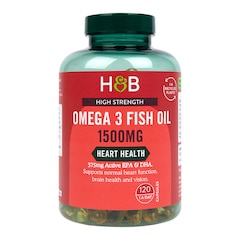
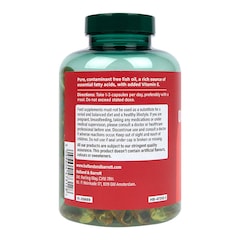
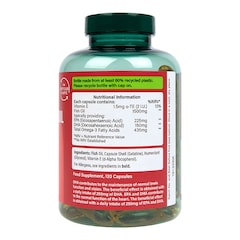
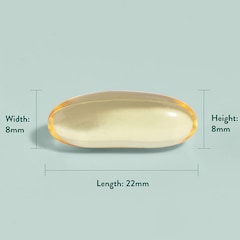
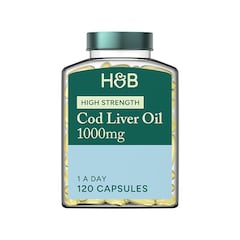
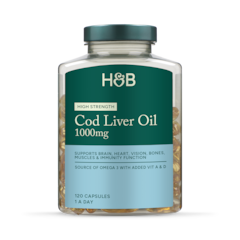
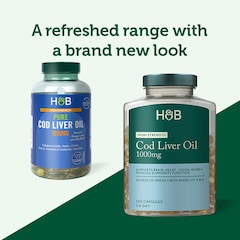
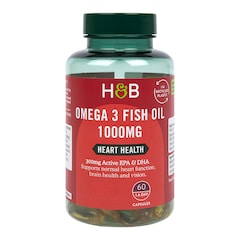
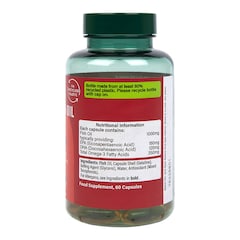
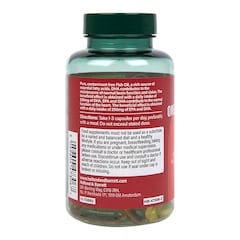
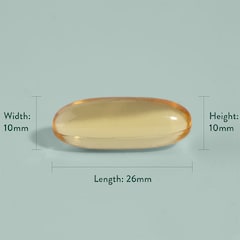
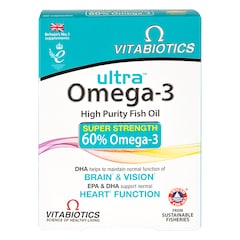
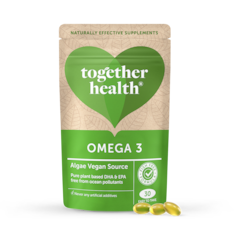
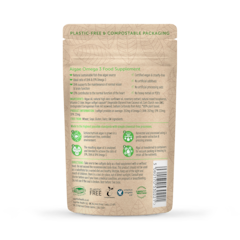
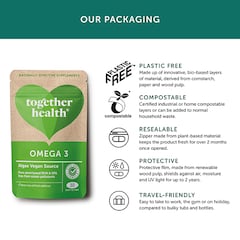

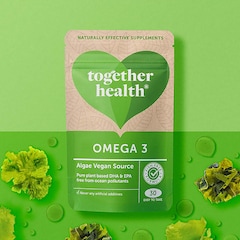
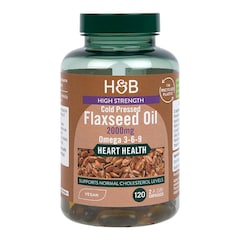
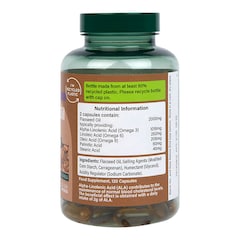
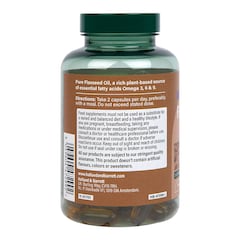
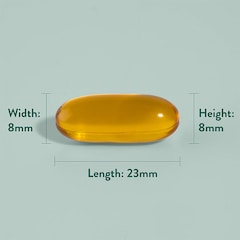
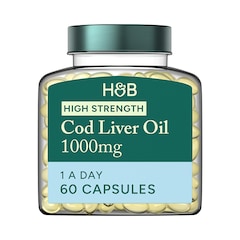
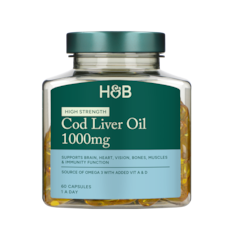
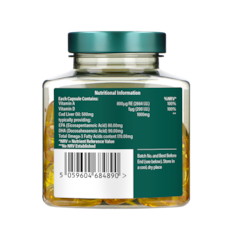
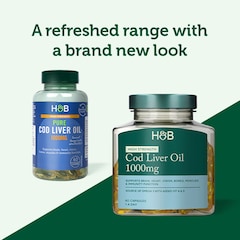
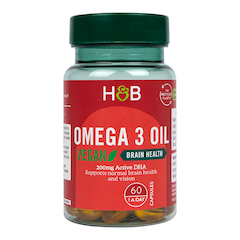
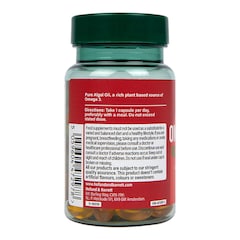
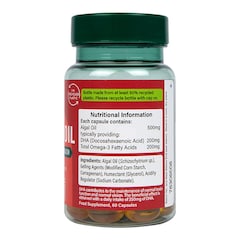
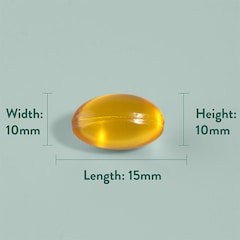
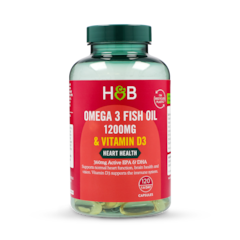
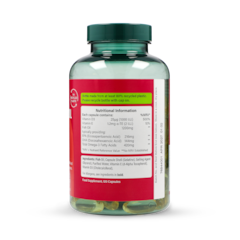
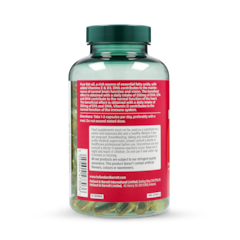
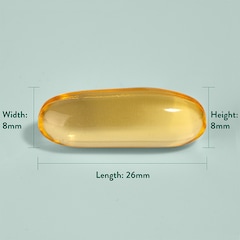
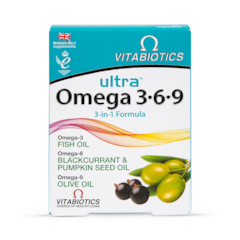
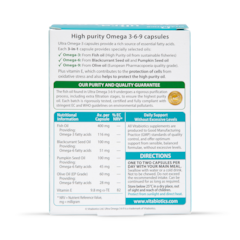
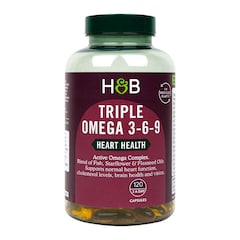
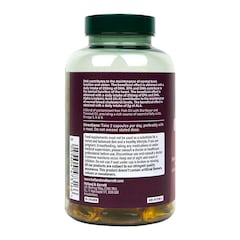
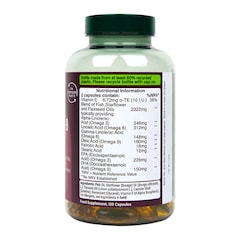
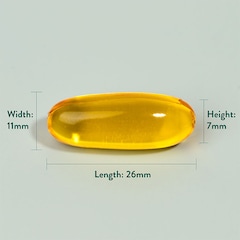
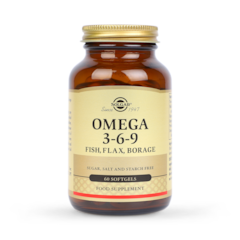
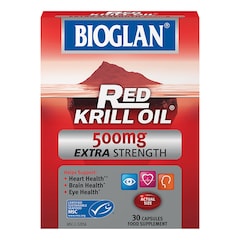
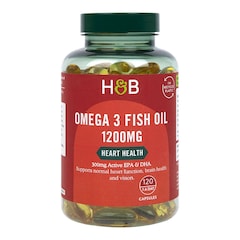
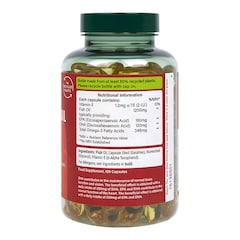
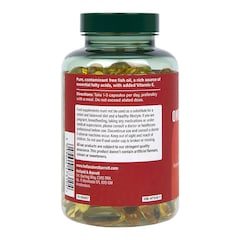
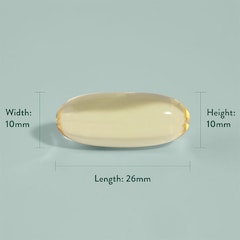
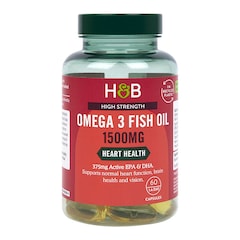
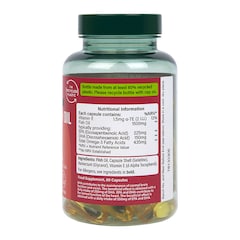
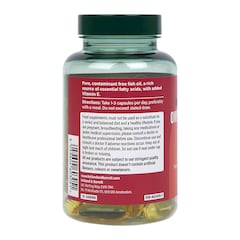
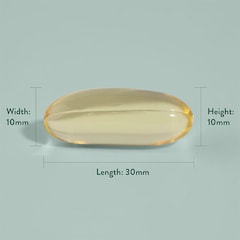
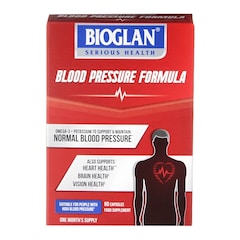
Shop Omega-3 Fish Oil at Holland & Barrett
The benefits of oily fish have long been lauded, but with so many different types on the market, which fish oil is right for you? Salmon? Cod liver? Krill? Are there any vegetarian or vegan alternatives? Why do we really need them in the first place? And what actually is an Omega anyway?
What are the benefits of fish oil?
There are many proven benefits to getting sufficient fish oil in our diets. These benefits range from helping to maintain your health function to supporting norma brain development in unborn babies.
Unfortunately, many western diets do not tend to contain enough of the very best fish: salmon, mackerel and sardines. This means that many people choose to take additional supplements, for the many benefits fish oil provides.
Fish oil is one of the essential fatty acids
“Essential” fatty acids are the two fatty acids that the body cannot make itself, and which therefore have to be taken via our diet. These fatty acids are known as omega-3 and omega-6. Fish oils provide the richest source of omega-3, whilst chia seeds, walnuts and flaxseeds (linseeds) can also contribute to our intake of omega-3s.
Unfortunately however, the plant-based omega-3s do not provide DHA and EPA, two of the most important omega-3s for effective brain and heart function. The third essential fatty acid is omega-6. Westerners usually get more than enough omega-6 in their diet, as it can be found in many nuts, seeds and oils.
Omega-6 benefits include helping maintain normal blood cholesterol levels. The beneficial effect is obtained with a daily intake of 10 g of omega-6 fatty acid, linoleic acid. Omega-6 has also been used to aid weight loss (as part of a meal-replacement plan).,
What are DHA and EPA?
There are three types of omega-3 essential fatty acid – DHA, EPA and ALA. Whilst ALA is found in some nuts and seeds, DHA and EPA are only found in fish oil and some types of algae. For more on vegan omega-3s, check out the article ‘Algae supplements: What are they?’ on the Health Hub.
Docosahexaenoic acid (DHA) supports the maintenance of vision and normal brain function. This beneficial effect is obtained with a daily intake of 250 mg of DHA. When DPA is combined with ecosapentaenoic acid (EPA), they contribute to normal heart function. This beneficial effect is obtained with a daily intake of 250 mg of EPA and DHA.
Which are the best fish oil supplements?
There are several types of fish oil pills out there, including fish oil capsules, fish oil tablets, and fish oil liquids. The best fish oil supplement for you is most likely down to personal preference.
For example, liquid cod liver oil might not be for you if you do not like the smell. Conversely, the oil could be perfect if you find it tricky taking tablets! Holland & Barrett offers a wide range of omega fish oil.
Holland & Barrett Omega 3 Fish Oil Concentrate comes in three strengths (1000mg, 1200mg, 1360mg and 1500mg). Then there’s Holland & Barrett Omega 3 Triple Strength Fish Oil, which provides over three times the amount of EPA and DHA than some of the other types.
Cod liver oil v krill oil – which is best?
Cod liver oil has been used by humans for decades and is one of the richest sources of omega-3s, including DHA and EPA. It has a strong taste when it is in liquid form, so many people prefer to take capsules, such as Holland & Barrett Cod Liver Oil Capsules.
An increasingly popular alternative is krill oil, made from shrimp-like crustaceans. Some manufacturers say there is less of an aftertaste and that krill oil omega-3s are more easily absorbed by the body. Check out Bioglan Red Krill Oil if you think it might be a good alternative for you.
Omega 3 6 9
There is one more important omega worth mentioning: omega-9. It can also be found in many monounsaturated oils, such as olive oil and avocado oil. It is not one of our essential fatty acids, as the body can generate omega 9 itself.
If you want to cover all bases, try an omega 3-6-9 supplement such as Solgar Omega 3-6-9 Fish, Flax, Borage Softgels. Which is the best fish oil for children and teens? Holland & Barrett Teen Omega 3 Fish Oils with A,D,E & C Chewy Capsules and Holland & Barrett Healthy Kids Omega 3 Fish Oils with A,D,E & C Chewy Capsules both come in berry or orange flavours.
And the fact they are chewable is likely to make them even more appealing to young people than tablets!
Shop Omega-3 Fish Oil at Holland & Barrett
The benefits of oily fish have long been lauded, but with so many different types on the market, which fish oil is right for you? Salmon? Cod liver? Krill? Are there any vegetarian or vegan alternatives? Why do we really need them in the first place? And what actually is an Omega anyway?
What are the benefits of fish oil?
There are many proven benefits to getting sufficient fish oil in our diets. These benefits range from helping to maintain your health function to supporting norma brain development in unborn babies.
Unfortunately, many western diets do not tend to contain enough of the very best fish: salmon, mackerel and sardines. This means that many people choose to take additional supplements, for the many benefits fish oil provides.
Fish oil is one of the essential fatty acids
“Essential” fatty acids are the two fatty acids that the body cannot make itself, and which therefore have to be taken via our diet. These fatty acids are known as omega-3 and omega-6. Fish oils provide the richest source of omega-3, whilst chia seeds, walnuts and flaxseeds (linseeds) can also contribute to our intake of omega-3s.
Unfortunately however, the plant-based omega-3s do not provide DHA and EPA, two of the most important omega-3s for effective brain and heart function. The third essential fatty acid is omega-6. Westerners usually get more than enough omega-6 in their diet, as it can be found in many nuts, seeds and oils.
Omega-6 benefits include helping maintain normal blood cholesterol levels. The beneficial effect is obtained with a daily intake of 10 g of omega-6 fatty acid, linoleic acid. Omega-6 has also been used to aid weight loss (as part of a meal-replacement plan).,
What are DHA and EPA?
There are three types of omega-3 essential fatty acid – DHA, EPA and ALA. Whilst ALA is found in some nuts and seeds, DHA and EPA are only found in fish oil and some types of algae. For more on vegan omega-3s, check out the article ‘Algae supplements: What are they?’ on the Health Hub.
Docosahexaenoic acid (DHA) supports the maintenance of vision and normal brain function. This beneficial effect is obtained with a daily intake of 250 mg of DHA. When DPA is combined with ecosapentaenoic acid (EPA), they contribute to normal heart function. This beneficial effect is obtained with a daily intake of 250 mg of EPA and DHA.
Which are the best fish oil supplements?
There are several types of fish oil pills out there, including fish oil capsules, fish oil tablets, and fish oil liquids. The best fish oil supplement for you is most likely down to personal preference.
For example, liquid cod liver oil might not be for you if you do not like the smell. Conversely, the oil could be perfect if you find it tricky taking tablets! Holland & Barrett offers a wide range of omega fish oil.
Holland & Barrett Omega 3 Fish Oil Concentrate comes in three strengths (1000mg, 1200mg, 1360mg and 1500mg). Then there’s Holland & Barrett Omega 3 Triple Strength Fish Oil, which provides over three times the amount of EPA and DHA than some of the other types.
Cod liver oil v krill oil – which is best?
Cod liver oil has been used by humans for decades and is one of the richest sources of omega-3s, including DHA and EPA. It has a strong taste when it is in liquid form, so many people prefer to take capsules, such as Holland & Barrett Cod Liver Oil Capsules.
An increasingly popular alternative is krill oil, made from shrimp-like crustaceans. Some manufacturers say there is less of an aftertaste and that krill oil omega-3s are more easily absorbed by the body. Check out Bioglan Red Krill Oil if you think it might be a good alternative for you.
Omega 3 6 9
There is one more important omega worth mentioning: omega-9. It can also be found in many monounsaturated oils, such as olive oil and avocado oil. It is not one of our essential fatty acids, as the body can generate omega 9 itself.
If you want to cover all bases, try an omega 3-6-9 supplement such as Solgar Omega 3-6-9 Fish, Flax, Borage Softgels. Which is the best fish oil for children and teens? Holland & Barrett Teen Omega 3 Fish Oils with A,D,E & C Chewy Capsules and Holland & Barrett Healthy Kids Omega 3 Fish Oils with A,D,E & C Chewy Capsules both come in berry or orange flavours.
And the fact they are chewable is likely to make them even more appealing to young people than tablets!
